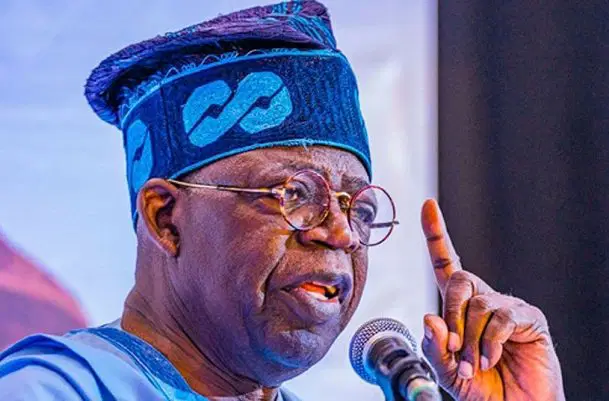“Nigeria First”: Tinubu’s Bold Procurement Reform Targets Economic Sovereignty, Job Creation, and Local Industry Revival
By HeadlineNews.News Editorial Board.
May 2025
President Bola Ahmed Tinubu has approved a landmark policy titled “Renewed Hope Nigeria First,” which mandates all Federal Ministries, Departments, and Agencies (MDAs) to prioritise Nigerian-made goods, services, and innovations in all government spending. The decision, announced by the Minister of Information and National Orientation, Mohammed Idris, signals a radical shift in public procurement, mirroring former U.S. President Donald Trump’s America First economic doctrine.
“This policy seeks to foster a new business culture that is bold, confident, and very Nigerian,” Idris declared. “Government money must now work for the Nigerian people.”

A Policy Anchored on Self-Reliance
The new framework aims to curb the overreliance on foreign imports, stimulate local industry, and build economic resilience by anchoring government investment in Nigerian solutions. According to Idris, the Attorney General of the Federation has been directed to prepare an Executive Order, giving the policy immediate legal force.
Key directives include:
Strict adherence to local content rules in all procurement decisions.
A database of verified Nigerian suppliers to be maintained by the Bureau of Public Procurement (BPP).
Procurement officers to be redeployed from MDAs to BPP for stricter oversight.
A mandatory waiver system for importing goods available locally.
Technology transfer clauses in all foreign contracts.
Penalties including disciplinary action, cancellation of procurement, and jail terms for violators.

Lessons from the World: National Interest First
Many nations have successfully leveraged similar policies to accelerate industrial growth:
India’s “Make in India” initiative, launched in 2014, increased FDI inflows to over $81 billion in 2020–21 by mandating local sourcing and incentivising domestic manufacturing.
Brazil, through its National Champions policy, grew domestic industrial capacity by protecting local companies in strategic sectors.
South Korea’s procurement reforms in the 1980s prioritized homegrown tech, giving rise to global giants like Samsung and LG.
The United States’ Buy American Act, strengthened under Trump, helped drive federal contracts toward American suppliers and reignite local production.
These examples demonstrate how local procurement boosts employment, strengthens currencies, and enhances technological sovereignty—all goals Nigeria now seeks to emulate.

The Economic Rationale
Nigeria currently spends billions in foreign currency annually on imports for public contracts, even when local alternatives exist. According to data from the Budget Office, federal and state governments spent over ₦2.5 trillion on capital projects in 2023, with an estimated 48% of contract components sourced abroad.
Reducing even half of this with local inputs could save Nigeria over $3 billion in foreign exchange annually, supporting the embattled Naira and curbing inflation.

Sugar as a Case Study of Neglect
Despite having the National Sugar Development Council and large-scale local producers like Dangote Sugar, Nigeria continues to import over 1.7 million tonnes of sugar annually, costing the economy over $500 million per year. Idris emphasized that such misalignments between capacity and policy should now be corrected.
Implementation: The Elephant in the Room
While the policy is bold and timely, implementation remains the biggest challenge.
“In a corrupt procurement system, policies are only as strong as their enforcement,” said Dr. G. Fraser, MFR, a development strategist. “There must be clear consequences. Jail terms—not fines—should deter both contractors and public officials from circumventing the law.”
Experts argue that compliance mechanisms must be watertight, with digital tracking of procurement and public transparency dashboards for monitoring.

The Power Factor: A Glaring Contradiction
Nigeria’s manufacturers are already grappling with high energy costs. Ironically, even the Presidency has switched to solar power due to erratic supply and prohibitive tariffs. If local production is to be truly competitive, the government must first fix the power sector.
“You can’t enforce local content if your factories can’t power their machines,” noted a Lagos-based SME owner. “Until electricity is stable and affordable, this dream will struggle.”
The Tinubu administration is reportedly considering a national solar industrialisation plan in tandem with its energy transition strategy. This could position Nigeria as a climate-friendly, manufacturing-driven economy.
“This is not just about Nigeria,” said a spokesperson for the UN Climate Group. “Energy reforms aligned with production policy signal a readiness for green industrial investment. Nigeria is making the right move.”

Final Thoughts
This policy could catalyse technology transfer, attract foreign manufacturers to produce locally, and create thousands of jobs across the value chain. It aligns with climate goals, industrialisation, and the long-term vision of self-sufficient national development.
“President Tinubu deserves credit for this bold step,” said Dr. Fraser. “It’s the kind of decision that reshapes economies and reclaims national dignity. But boldness must now meet discipline.”
If enforced effectively, the Renewed Hope Nigeria First policy could become the most transformative economic strategy since Nigeria’s return to democracy—one that keeps wealth within, builds for the future, and restores pride in Nigerian enterprise.

Editor’s Note: For public feedback, data analysis, and updates on implementation progress, follow our #NigeriaFirstWatch tracker at HeadlineNews.News.
Dr. G. Fraser. MFR
Editor, HeadlineNews.News




